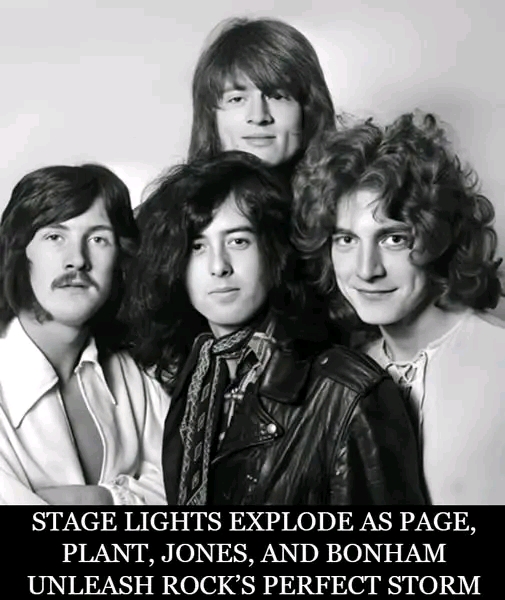Led Zeppelin wasn’t just a band; they were a seismic event that redefined what rock music could be. Formed in 1968 by four visionaries—Jimmy Page, Robert Plant, John Paul Jones, and John Bonham—Led Zeppelin fused blues, folk, and hard rock into something both primal and transcendent. Their music carried the weight of thunder and the grace of poetry, capturing the full range of human emotion in a sound that felt larger than life.
At their core, Led Zeppelin were explorers. Page’s guitar mastery combined raw power with mystic intricacy, while Plant’s voice—equal parts wail and whisper—channeled ancient longing and youthful rebellion. Jones added depth with his multi-instrumental brilliance, and Bonham’s drumming provided the unstoppable heartbeat that drove the band’s sound. Together, they created a musical chemistry that could not be replicated, one that elevated every song into a living, breathing force of nature.
Each album told a new chapter in their evolving mythology. Led Zeppelin I introduced the band with raw, electrifying blues rock; Led Zeppelin IV brought forth the timeless “Stairway to Heaven,” a song that bridged the mystical and the monumental; and Physical Graffiti expanded their reach, proving their mastery of both epic scale and subtle nuance. Their music was not confined by genre—it was a universe of its own making.
Onstage, Zeppelin became legends. Their concerts were not mere performances but spiritual awakenings of sound and emotion. Audiences were swept into improvisational storms where no two nights were the same. The interplay between Page’s fiery solos, Plant’s magnetic presence, Jones’s steady precision, and Bonham’s thunderous attack created moments that transcended entertainment—they became experiences of pure musical energy.
Yet Led Zeppelin’s greatest legacy lies beyond their record sales or sold-out arenas. They taught the world that rock could be art—that it could be cinematic, emotional, and boundless. Their influence can be heard in nearly every rock band that followed, from the heavy riffs of Metallica to the dreamlike atmospheres of Radiohead. Zeppelin showed that music could be both deeply personal and universally powerful.
Decades after their final notes faded, Led Zeppelin’s storm still echoes. Their songs continue to inspire, to challenge, and to move listeners who weren’t even born when the band was in its prime. More than a band, they became a symbol of creativity unchained—a reminder that true art does not chase trends or follow paths. It forges them.

Leave a Reply